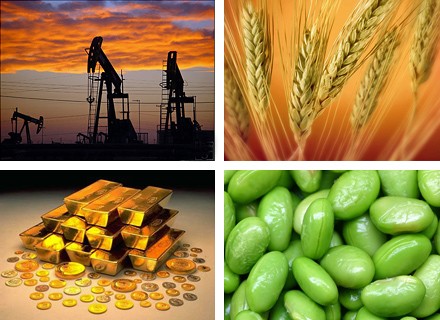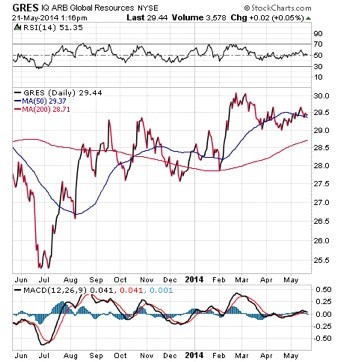ETFs Provide Easy Access to Energy Commodities
Post on: 10 Май, 2015 No Comment

Exchange traded funds or ETFs are becoming increasingly popular with investors mainly because they enable an investor to invest in a wide range of assets such as natural gas, crude oil, grains, precious metals, and even livestock. Here is how ETFs provide easy access to energy commodities:
Overview of ETFs
In simple terms, ETFs track market benchmarks or indexes of asset classes, for example, commodities. Unlike mutual funds or index funds, ETFs are available in varying amounts, which makes them highly tradable. In addition, investors who buy energy ETF shares can exchange them for portions of the actual underlying commodities.
Why Invest In Energy Commodities
There are several reasons why you should invest in energy commodities. To start with, energy commodities like crude oil have a low correlation to asset classes like stocks and bonds. Secondly, investors can use energy commodities to protect their investment portfolios against inflationary pressures. A report published by Bloomberg L.P. show that the 15 year correlation to inflation for commodities was 0.64 from 1998 to 2013. In comparison, correlation to inflation values for stocks, gold, bonds, and emerging markets stood at 0.24, 0.10, -0.16, and 0.19 over the same period. This means that investors do not have to worry about losses when stock markets fall.
Thirdly, energy commodities tend to have better returns compared to other asset classes. The same Bloomberg L.P. report shows that a portfolio made up of 100% commodities would have had a return of 8.4% during the 15 year period. In comparison, a portfolio made up of 60% stocks and 40% bonds would have registered returns of 5.3%. Fourthly, the performance of energy commodity ETFs does not depend on the outlook of a particular countrys domestic economy, which is good news for investors who would like to benefit from global economic growth.
How to invest in energy ETFs

Firstly, you can go for single contract ETFs. These usually trade in single futures contracts tied to energy sector assets such as natural gas and heating oil. Secondly, you can invest in multi-contract ETFs that trade in several futures contracts. Thirdly, you can invest in ETFs that focus on the renewable energy sector (solar, wind, and biomass). A good example in this space is the Market Vectors Global Alternative Energy ETF.
A Word of Caution
Investing in ETFs that track energy commodity indexes can be risky. For this reason, it is advisable to screen ETFs that you are eying thoroughly. Use tools and sites such as the Commodities Database at Commodity HQ, AssetCorrelation.com, and ETFdb Screener to choose ETFs that meet your investment requirements. In addition, learn the lingo used by seasoned investors/traders in this industry such as ER range, issuer, as well as expense ratio.
In conclusion, ETFs provide easy access to energy commodities like oil and can improve your portfolios returns significantly. Nevertheless, you should carry out due diligence before investing in an ETF to ensure you choose one that is reliable.














